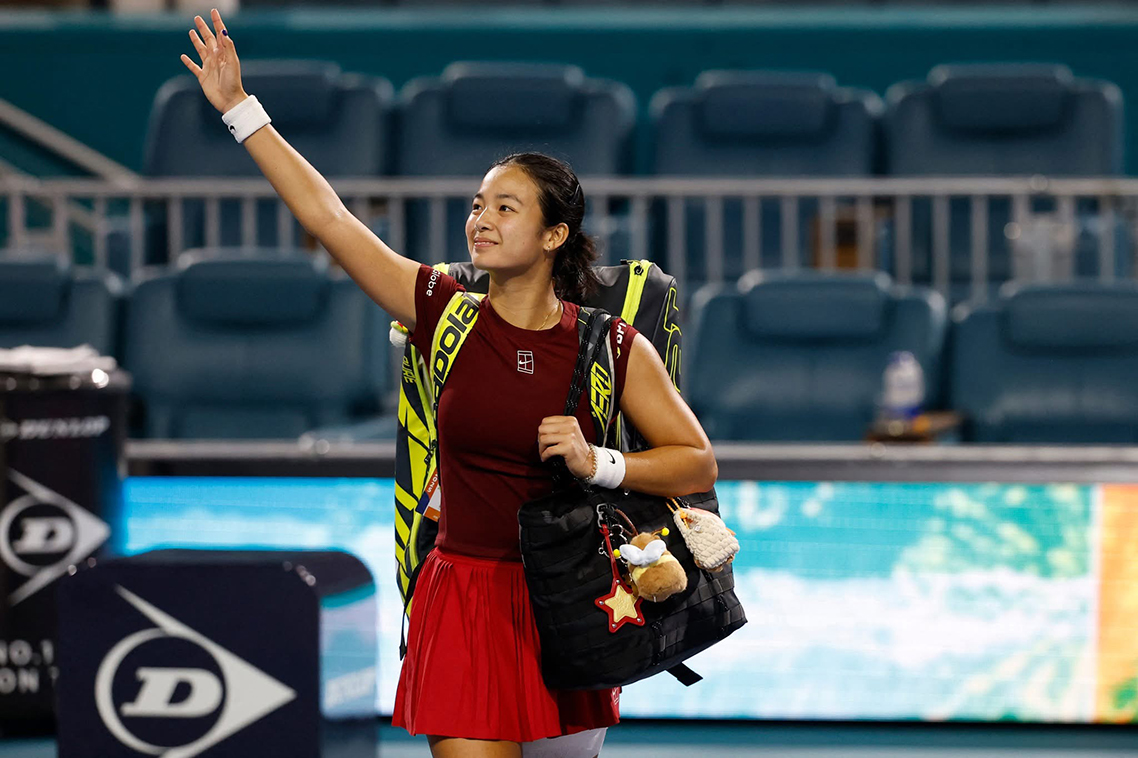Midway through her magical Miami run, Alex Eala was asked how she felt after defeating Madison Keys, the number 5 player in the world.
Tired and flustered, the 19-year-old could only blurt into the microphone: “Mom, Dad, nakuha ko! Oh my God!” The crowd roared.
In that spontaneous exclamation in Tagalog, she touched the hearts of Filipinos everywhere. But it also distilled the pressure, sacrifice, family support, and joy that are all part of winning at the highest level.
That girlish spontaneity and genuineness endeared her to the crowd.
But you don’t become endearing on this stage without talent. She seemingly came out of nowhere and made tennis history, not just as a Filipina but as the lowest ranking player (no. 140) to reach the semifinals of a major professional tennis tournament. The wildest of wild cards.
But this underdog from a nation better known for nurses quickly showed the tennis world that she belonged with the big girls, the Grand Slam champions who seemed bewildered by her accuracy and aggression. American sportswriters raved about her maturity and grit. In the middle of her last match, she twisted her ankle and had to be taped up. Yet she still made a comeback to take the second set before losing the third. Remarkably, she didn’t make the injury an excuse.
In this enchanted week she was one of the two most talked about Filipinos. The other was former President Rodrigo Duterte, detained in The Hague where he was serenaded by his followers on his birthday last Friday, the same day that Eala took the world no. 4, the American veteran Jessica Pegula, to the brink before finally losing in the semifinals.
In various ways, these two Filipinos on the world stage are polar opposites.
One is aged and frail, and confined to a room. The other is just beginning to bloom, and travels the world while wielding a wicked return of serve.
They both draw large Filipino crowds, but for different reasons.
Outraged OFWs are flocking outside Duterte’s penitentiary and in various public spaces around the globe to protest his incarceration.
At the Miami Open, the exuberant crowd in the stadium stayed to cheer Alex after she lost to Pegula in a gutsy performance.
Like many on Friday, I was glued to my phone watching the livestream of her nail-biting match with Pegula. Then I had to interrupt my viewing to attend a sobering lecture by Raffy Lerma, a photojournalist who covered Duterte’s drug war.
The predominant mood of the past two weeks on my social media feed was anger and frustration no matter what side of the political fence you were on. The pro-Duterte camp was angry at his arrest and detention, and frustrated that even their large numbers cannot set him free.
The anti-Duterte camp was just as angry, mostly at the disinformation that was circulating, and frustrated that many kababayans still supported a leader facing charges of crimes against humanity.
Into this toxic, divided world steps a graceful Filipina youth whom everyone could root for. Like every great sports story, her dream run focused us on something other than our troubles.
Avid tennis fans have been familiar with Eala for a couple of years now. But the rest of us are just getting to know her. What she’s proving is that tennis is a prominent platform to represent Filipinos in a fresh way.
Tennis is notorious for its bratty, racket-throwing prodigies. The Philippines in recent times has seen its own abominable public displays of Gen Z behavior.
But Alex Eala has been a model of graciousness, respectful of her opponents and polite to everyone. What she shows on the court is not a temper but nerves of steel. And she’s home-grown, fluent in Filipino while speaking English without pretension. She sounds like many of us. Her Instagram is full not just of tennis but wholesome teen-age fun, with frequent expressions of gratitude to everyone who’s helped her.
She’s just starting her career on the world stage. She’ll only get better. With the nation watching her together, maybe we’ll get better as well.




